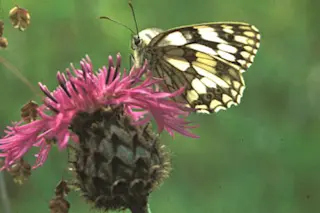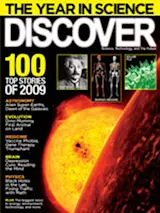In February a group led by biologist Stephen G. Willis of Durham University in the U.K. reported that they had introduced two butterfly species—known as the marbled white (shown here) and the small skipper—into new habitats about 40 miles and 22 miles, respectively, from their homes. The move was a success, Willis’s six-year study showed. The transplanted species increased their populations at the same rate as they would have in their current territory, proving that the team’s models accurately predicted habitats suitable for the insects. Willis says that he undertook the experiment because temperature increases are outpacing the butterflies’ ability to compensate by spreading northward.
Months earlier, marine biologist Ove Hoegh-Guldberg and colleagues, writing in the journal Science, proposed a broader program of relocating organisms that are facing extinction due to climate change. Dismayed scientists raised the alarm, pointing to the devastating effects of species introductions such as the invasive ...















